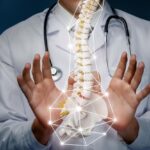Introduction
Orthopedics, a branch of medicine focusing on the musculoskeletal system, plays a pivotal role in diagnosing, treating, and preventing disorders related to bones, joints, ligaments, tendons, and muscles. This field has evolved significantly, offering advanced treatments and surgical options to improve patients’ quality of life. Sidhu Hospital is renowned as the best orthopedic hospital in Rahon, offering advanced treatments and expert care for musculoskeletal issues.
Understanding Orthopedics
Orthopedics treats a broad spectrum of illnesses, including degenerative diseases like osteoarthritis and congenital abnormalities like scoliosis. Orthopedic experts, often known as orthopedists, are qualified to perform intricate surgical operations, manage chronic illnesses, and treat acute injuries. They deal with problems that impair function and movement with patients of all ages.
Common Orthopedic Conditions
Arthritis:
A prevalent condition characterized by joint inflammation, pain, and stiffness. Orthopedic treatments for arthritis range from medication and physical therapy to surgical interventions like joint replacement.
Fractures:
Broken bones are among the most common orthopedic injuries. Treatment options include casting, splinting, and surgical procedures like fixation with plates and screws.
Back Pain:
A significant concern affecting millions worldwide, often resulting from herniated discs, spinal stenosis, or muscular issues. Orthopedic care includes physical therapy, medications, and in severe cases, surgery.
Sports Injuries:
Orthopedists frequently treat injuries sustained during athletic activities, such as ligament tears (e.g., ACL), meniscus injuries, and tendonitis. Rehabilitation and minimally invasive surgeries are common treatments.
Advancements in Orthopedic Treatments
The field of orthopedics has seen remarkable advancements, particularly in surgical techniques and rehabilitation methods:
Minimally Invasive Surgery:
Procedures like arthroscopy allow orthopedists to diagnose and treat joint problems through small incisions, reducing recovery time and postoperative pain.
Joint Replacement:
Innovations in materials and surgical techniques have improved the outcomes of hip, knee, and shoulder replacements, providing patients with better mobility and pain relief.
Regenerative Medicine:
Treatments involving stem cells and platelet-rich plasma (PRP) are being explored to promote healing in injured tissues and reduce recovery times.
Importance of Rehabilitation
Post-treatment rehabilitation is a critical component of orthopedic care. Physical therapy helps restore function, improve mobility, and strengthen the musculoskeletal system. Personalized rehabilitation programs are designed to meet individual patient needs, ensuring optimal recovery.
Preventive Orthopedics
Preventive measures play a crucial role in orthopedics. Maintaining a healthy lifestyle, engaging in regular exercise, and adopting proper ergonomics can prevent many orthopedic issues. Orthopedists also educate patients on injury prevention strategies, particularly for those involved in physical activities or sports.
Conclusion
Orthopedics is an indispensable branch of medicine dedicated to improving the musculoskeletal health of patients. Through advanced treatments, innovative surgical techniques, and comprehensive rehabilitation programs, orthopedists enhance the quality of life for individuals suffering from various musculoskeletal conditions. By focusing on both treatment and prevention, the field of orthopedics continues to evolve, offering hope and healing to millions worldwide.

